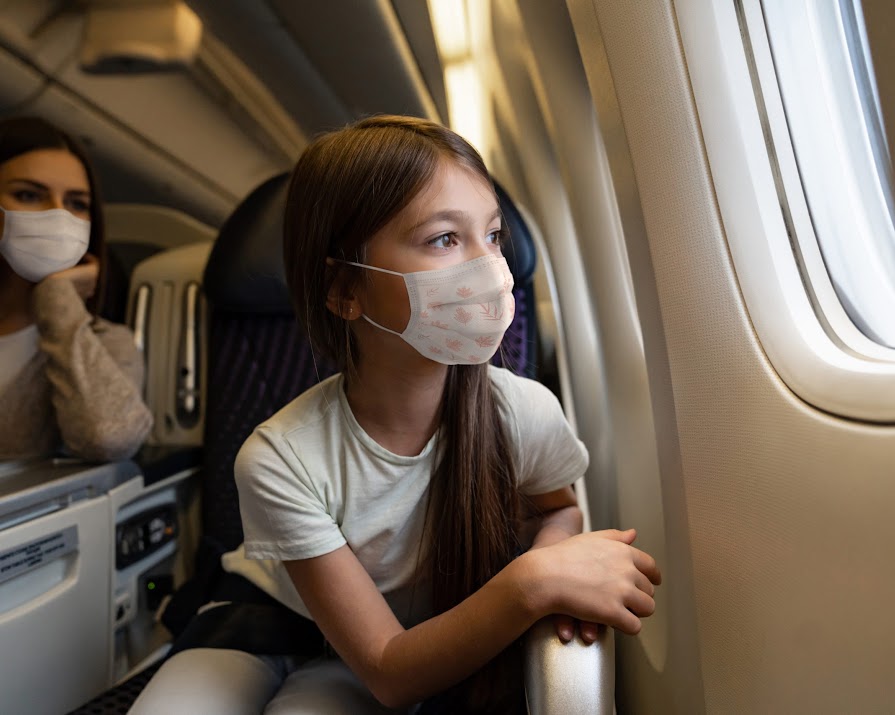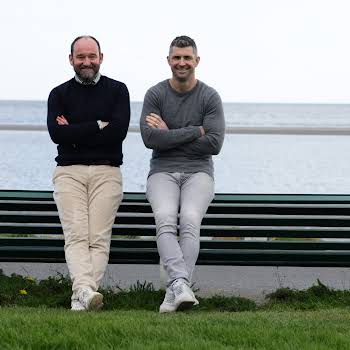Travelling with kids: what you need to know before going away this summer
By Sarah Finnan
30th Jul 2021
30th Jul 2021
Planning a family holiday abroad this year? Here’s what you need to know before travelling with kids.
The rules regarding non-essential international travel changed earlier this month, but there is still much confusion as to what is and isn’t allowed – particularly when kids are involved. However, with more Irish people choosing to venture abroad this summer, the very last thing you want is to arrive to the airport and find that you’re horribly unprepared.
Organising a trip away can be stressful at the best of times – even before factoring PCR tests, vaccinations and new passenger documentation in – so we’ve rounded up everything you need to know if travelling with children this summer.
New rules
Non-essential international travel was reintroduced as of July 19. Now, those who are fully vaccinated, have recovered from Covid-19 in the past six months or who have proof of a negative Covid-19 test taken within a certain timeframe prior to departure are free to travel within the EU, Iceland, Liechtenstein, Norway and Switzerland (all of which fall under the European Economic Area or EEA).
According to the new travel rules, people to any of the above countries will no longer have to quarantine upon arrival. The same is true of those returning to Ireland with the only exception being for those who travel on the basis of a negative test – they will be required to quarantine at a home address until a second negative test result is received five days after travel.
Children of any age, travelling with accompanying vaccinated or recovered adults will not be required to self-quarantine post-arrival. However, where one accompanying adult needs to self-quarantine, then all children must also self-quarantine.
EU Digital Covid Certificate (DCC)
The EU Digital Covid Certificate will show if you:
- Are vaccinated against Covid-19
- Have recovered from Covid-19 in the past six months
- Have a negative PCR test result taken no more than 72 hours before arrival
While it is still possible to travel without a DCC (it’s not a prerequisite to international travel), it will be easier to show that you satisfy the rules in each country by carrying one.
What does fully vaccinated mean?
A person is fully vaccinated when they have gotten the prescribed amount of doses of a vaccine approved by the European Medicines Agency (EMA).
You are considered fully vaccinated when:
- It has been 15 days since you got the second AstraZeneca dose
- It has been seven days since you got the second Pfizer-BioNTech dose
- It has been 14 days since you got the second Moderna dose
- It has been 14 days since you got the single Janssen dose
You are considered to have “recovered from Covid-19” if you had the virus in the past 180 days and have the documentation to prove so.
PCR tests
Anyone who is not fully vaccinated/has not recently recovered from Covid will have to present a negative PCR test in order to fly. Children between the ages of 12 and 17 must provide proof of a negative test result unless they have valid proof of vaccination/recovery. Children aged 11 years and under are exempt from having to do this however.
You can find up-to-date information regarding the travel restrictions for each individual country over on the Department of Foreign Affairs website.
Returning to Ireland
It is advised that passengers check the latest information on travel restrictions to Ireland before departing. Travellers returning home to Ireland must fill in an electronic passenger locator form within 72 hours of flying along – these are standard in most countries so be sure to check the restrictions for your destination prior to departure (some countries require these to be filled out at least 24 hours in advance).
All children must be declared on a passenger locator form – children under 16 should be included on the same form as an accompanying adult while unaccompanied children aged 12 and older are required to complete their own form. Children aged 11 and under do not need to show a negative test.
If you have valid proof of vaccination, no travel-related testing or quarantine will be necessary. If you have valid proof that you have recovered from Covid in the past 180 days, no travel-related testing or quarantine will be necessary.
If you do not have valid proof of vaccination or recovery, you will need to present evidence of a negative PCR result from a test taken within 72 hours prior to arrival into the country
Emergency brake mechanism
If you are travelling between Great Britain and Ireland at the moment, you do not need a PCR or to quarantine if you can prove you have been fully vaccinated. However, this may change as Ireland has signed up to the emergency brake mechanism in order to react swiftly to the emergence of a variant of concern. If there’s a sudden jump in cases from a particular country, Government will pause travel to that country. This applies mainly to countries outside the EEA with Great Britain also included under this umbrella.
If travelling back to Ireland from a country that has been subject to such an emergency brake, you will be required to provide proof of a negative PCR test taken up to 72 hours prior to arrival (even if vaccinated) and you will need to quarantine at home until proof of a second negative test is received five days later.
Anyone returning from an emergency brake country who is not vaccinated or has not recently recovered from Covid-19 will have to enter 14-day mandatory hotel quarantine. You will be able to leave only if you test negative 10 days after arrival.
The Travel Expert
According to Sarah Slattery of, The Travel Expert, “Parents should check the entry requirements for the country they are going to regularly before travel as things are changing on a daily basis. Most countries allow children under 12 to travel without testing, but child ages vary from country to country – Germany for instance requires anyone aged seven or over to provide proof of a negative test on arrival. For parents travelling with children 12 or over, they will need to have a negative PCR test when returning to Ireland.”
As for what resources she recommends? “The Reopen EU app is a handy one to download. It shows entry requirements and Covid measures that are in place in the country you are going to. Some countries will only allow indoor dining/events for vaccinated people, others require masks to be worn outdoors, while others have curfews in place – it is important you are aware of the restrictions,” she noted.
“Print off your Digital Covid Certificate and passenger locator form before you travel – phones can run low on battery, freeze, and the paper format may be quicker and easier,” she advised.
Another crucial thing to consider is what to do if you get Covid-19 while abroad. Even if you suffer mild symptoms, you will not be able to reboard a flight home for at least a week after your positive Covid test and this depends on subsequent tests and each country’s regulations. “Make sure you have travel insurance in place that covers you if you or your child get Covid-19 abroad. Multitrip.com and possibly others will cover you for flight and reasonable accommodation expenses if you have to quarantine while waiting for a negative test result to enable you to fly home.”
Also encouraging parents to think ahead and plan their itinerary ahead of time, Sarah pointed out that most popular attractions and restaurants will need to be prebooked. “Similar to at home, numbers will be restricted, so if there is a waterpark, top attraction or restaurant that you want to visit, book it in advance.”
Finally, get to the airport early! Even earlier than you might have in pre-Covid times. “Get to the airport early – I have been told by followers that Terminal 1 in Dublin Airport is busier than Terminal 2. Many airlines including Aer Lingus may not offer inflight service, so make sure you eat before you travel, and bring snacks on board with you.”
Check list
Passports – Ensure all your passports are in date with at least six months left on them. It’s been a long time since you travelled and most airlines don’t require passport details until you’re checking it, which might be too late.
Proof of vaccination – Even if your children are not vaccinated, they won’t have to self-quaratine when travelling within Europe if you have been vaccinated and are accompanying them.
European Health Insurance Card – Bring this for everyone on the trip, as it give grant you access to emergency healthcare anywhere in the EU.
Snacks – as mentioned, airlines are not currently serving customers and so it’s important to have something on hand to keep them entertained / avoid the dreaded hangriness.
You can keep up to date with government advice on international travel here.
Feature image via Getty























